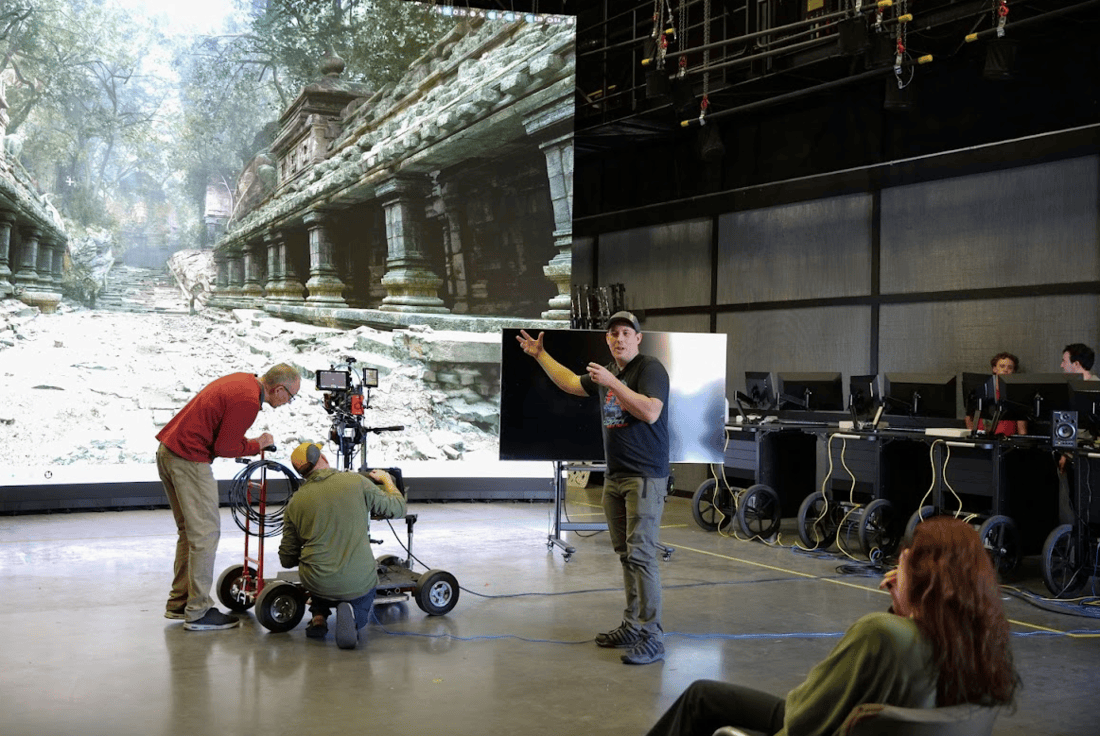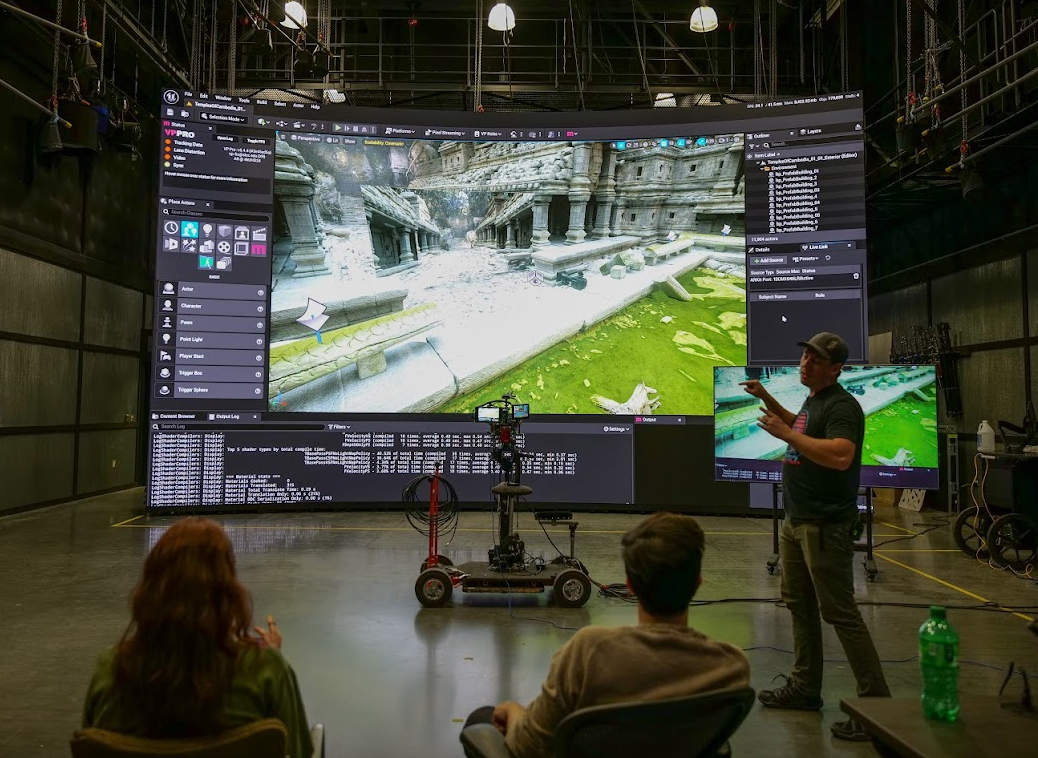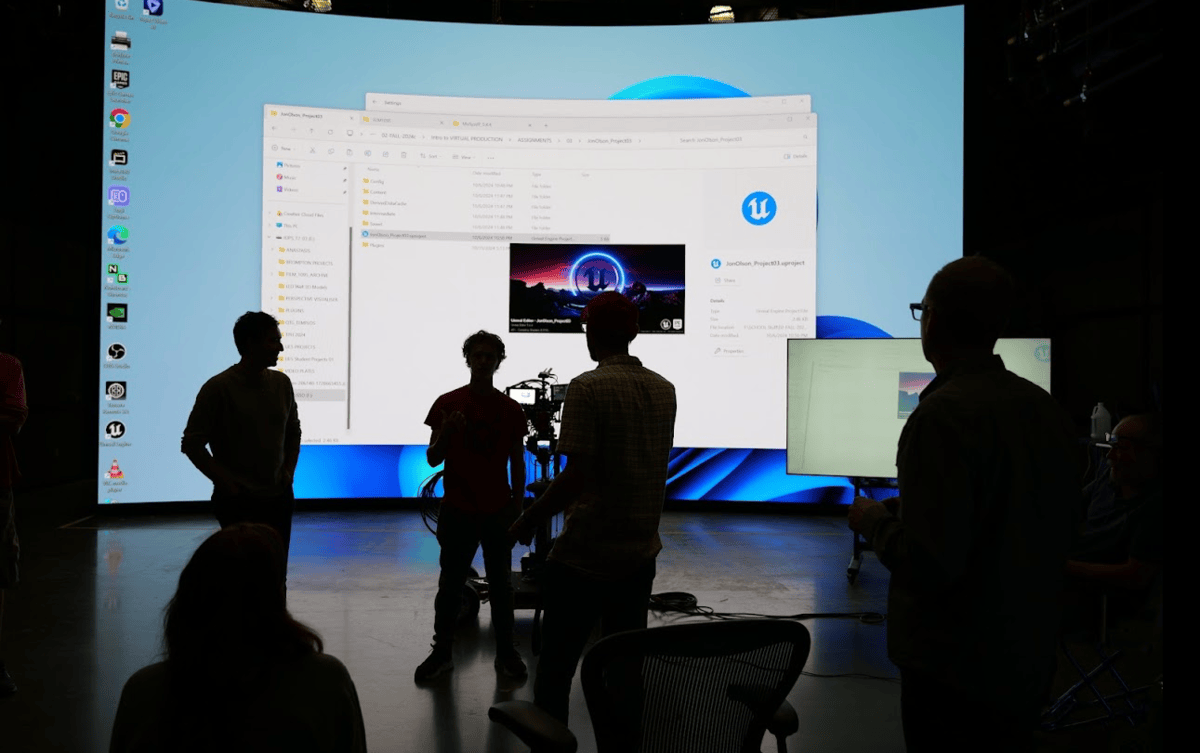

Salt Lake City, Utah, October 21, 2024
Students studying film at SLCC’s School of Arts, Communication & Media (SACM) now have access to the same state-of-the-art technology used in movies and television series. The newly unveiled Taylor Virtual Production Stage is first resource of its kind in Utah's higher education landscape. Its also the same technology used in creating video games, allowing for photorealistic, real-time renderings of fully fictional characters and environments.
“We are incredibly proud to offer this state-of-the-art technology to our film students—and to be the only film program in the state to do so this far,” said SACM’s Dean Richard Scott. “It not only puts storytelling into the hands of our incredibly creative film students who can’t rely on big production budgets, but it is equipping them with a high-demand technical skill set that sets them up for employment in the industry for well-paying careers.”
The SLCC virtual production stage is centered around a large digital wall composed of LED light panels that allow actors to perform in front of imagery that can be changed and adjusted in real time. With a click of a button, massive virtual landscapes can change from a beach scene to a mountain peak.

This wall can replace the need for filming on location or in front of traditional green-screen backdrops that require backgrounds to be added digitally post filming. It also streamlines production schedules and can lower costs, as well as providing responsive environments for actors and real-time lighting.
The stage includes a 31-foot-wide by 18-foot-high LED panel wall (made up of 612 individual LED modules), operating off a mobile workstation capable of rendering specialized graphics and real time camera tracking. There is also industry-standard camera equipment, lighting and motion capture technology.
“It is a whole new pathway for students to explore how film is made. It simulates being there in the virtual environment, creating dynamic imagery either for backdrops for a documentary interview or for narrative film,” said Associate Professor Tyler Smith, who teaches documentary filmmaking.

Smith explains that the new technology involves significant preproduction work to set up the environment. This boosts an actor’s performance because the actors can see the simulated environment instead of imagining what the surroundings would be, as with a green screen.
“Training our students on this whole new process will make them more employable and it will help attract out-of-state production companies because they will have access to a local, skilled workforce,” explained Smith, who anticipates that SLCC will eventually have a virtual production academic track.
The stage is one of the first to be found in a community college nationwide, and when SLCC class registration opened this fall semester, the Virtual Production class filled up immediately. “Students are just loving it,” said Smith.
Jerry and Edna Taylor’s generosity has made the virtual production stage possible. They are longtime supporters of SLCC students and the College’s School of Arts, Communication, and Media.


